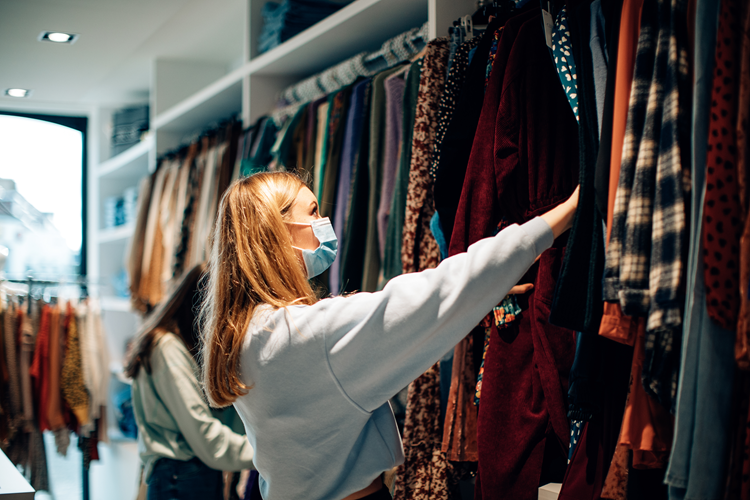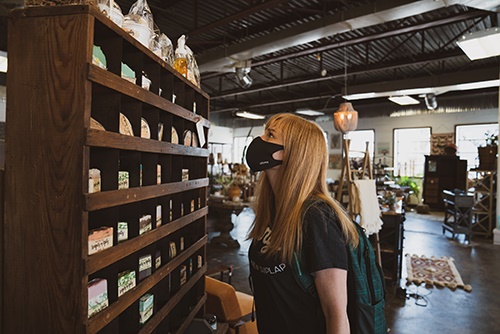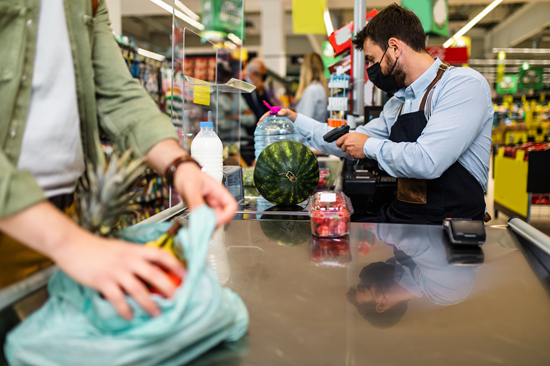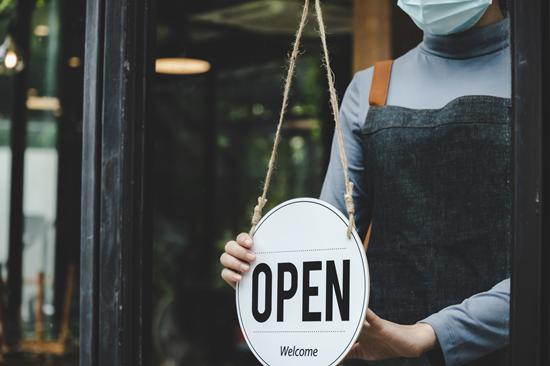The COVID-19 pandemic shook the foundations of retail across the UK, hitting independent businesses and high streets especially hard. But five years later, stories of resilience, reinvention, and community-driven change show how these retailers are redefining what it means to do business today.

Five years ago, the COVID-19 pandemic brought unprecedented disruption to communities and economies across the UK. Among the hardest hit were independent retailers and high street businesses, many of whom were forced to shut their doors with little warning.
In those early days, survival became the priority. But through ingenuity and resilience many independent retailers not only endured—they adapted.
Navigating the Storm
The initial impact of the pandemic was swift, footfall on the high street vanished overnight and the transition to online shopping accelerated dramatically. Independent retailers scrambled to implement delivery options, embrace digital platforms, and engage their communities online. Many used furlough schemes and government grants to stay afloat, while others pivoted to new business models entirely. Despite the uncertainty, a spirit of collaboration emerged.
Andrew Goodacre, Bira CEO added: “Faced with unprecedented challenges, we saw thousands of independent retailers pivot with speed and creativity, reimagining storefronts, embracing digital tools and finding new ways to serve their communities. Their determination not only kept doors open but also redefined what it means to be a local business in times of crisis.”
Staying Strong: How shops adapted after COVID
Five years later, the retail landscape has undeniably transformed—though not always for the better, it has changed in ways that still offer hope. Many independent retailers have embraced a hybrid approach, blending physical presence with digital outreach. Click-and-collect, local delivery, and community-led marketing are now core strategies.
High streets themselves are slowly reviving, not through a return to the old model, but through reinvention. Retail spaces are being shared with local artisans, wellness services and cafes, creating vibrant, experience-led environments that online giants can’t replicate.
The pandemic saw 80% of mobile traders unable to trade until events opened up again or benefit from government grants, while 70% of bricks & mortar businesses moved into delivery, collection, takeaway and food boxes. At the height of the pandemic in 2020, 66% of NCASS members believed their business would permanently close as a result, 49% used their savings to survive and 72% weren’t eligible for the initial grants. Many associations, including NCASS lobbied government to support the hospitality sector and initiatives such as caterers working with wet led pubs and ARG grants were introduced.
Between then and now, the sector has lost many independent businesses but many of the strategies put in place during covid have enabled businesses to keep going. Collaborations between wet-led pubs and caterers continues to grow for example, takeaway and delivery is part and parcel of many businesses, cafes with a deli continues to be popular and creating experiences through food & drink is still a mainstay across the UK.
The independent hospitality sector has proven to be one of the most resilient. Although there were and are still huge challenges, businesses continue to be adaptable and creative in their approach. We have seen bricks and mortar businesses move into mobile catering for events and festivals, event & festival caterers moving into bricks & mortar, pop-ups, collaborations, out-door spaces, deliveries & takeaways becoming a core part of many businesses, branding and social media becoming more important than ever before and a huge amount of R&D happening to refine offerings and get ahead of the competition.
Experiences from retail across the UK

So many Bira and NCASS members have inspiring stories of resilience. Here we hear from Monica, Owner of wool shop, Shoreham Knitting & Needlecraft, in West Sussex.
"Our online store, English Yarns was established in 1997. It always used to be about 75% of our total sales (75% online and 25% in the shop) but when Covid struck in March 2020 and we went into lockdown, total sales from our online store increased about 5 times as customers all over the world stayed at home and took up knitting and crochet.
"I do think the lockdown had an enormous effect on the way people want to shop."
"We did not expect this enormous increase of sales from our online business to last after the lockdown, but a few events took place shortly afterwards bringing our sales down very rapidly, the first being Brexit. After the lockdown was over the new export regulations and VAT problems were fully enforced and we lost virtually all our EU customers because of this. It was total chaos! Then our two main suppliers were sold and shortly afterwards they both brought out new websites selling direct to consumer.
"Customers coming into our shop tell us that they prefer to shop in a bricks and mortar store if possible so they can see the colours and feel the yarns but I do think the lockdown had an enormous effect on the way people want to shop. They enjoy the interaction with us and other fellow knitters and can chat about their projects.
"Now, we find that Facebook and Instagram are the best ways of creating new customers for our online business and for our shop. We recently did a small marketing video of the shop on both platforms. It has brought in loads of new customers! Many local people who did not know the shop was there - we have been in this shop since 1983!"
Stories of adaptation from the hospitality sector
It’s not been smooth sailing for all retailers and the challenge of introducing an ecommerce element to a retail business doesn't always pay off as Georgina, Owner of gift shop, Pretty Shiny Shop, in London shares.
"I put a lot of effort into my website and socials during Covid, but in the long run, it didn’t make too much of a difference. I have since made two more efforts, hiring specialists and committing funds to truly try and make my website as profitable as perhaps a new shop would be - but I just can’t compete with businesses like Oliver Bonas, John Lewis or Moonpig.
"Being smaller I could not carry the stock levels needed to compete and by the time the cost of Google advertising, account management, shipping etc was taken into consideration I was actually losing money on those sales and then didn’t have that stock for my physical shops.
"Even though I have not been overly successful with my e-commerce offering, I have seen year on year growth every year in the shops - so I must be doing something right!"
"E-commerce feels like it is just not a viable option for my gift shop. I still have a website because customers often look there before coming in - and still get some orders - but my goal now is to just make sure the cost of running it is always covered by the sales income.
"Covid was a tough time. Any grant money I got went to paying the rent. My staff got paid via the Government program but I did not qualify of course as a sole trader. I am still paying off my bounce back loan.
"The average customer has come to expect so much more for their money, making it difficult to maintain my prices while other aspects of running my business are increasing in cost. For example my business rates at both shops have just tripled. It feels like the economy has been in constant flux post covid, so I’m always looking for ways to pivot my offering to match customers spending abilities and mood. I guess the good news is that even though I have not been overly successful with my e-commerce offering, I have seen year on year growth every year in the shops - so I must be doing something right!"

While the crisis tested everyone, it also brought innovation. Both mobile and Bricks & Mortar independent hospitality business adapted to the pandemic; working together with other businesses, supporting key workers and the vulnerable and changing the way they worked so they could keep running their businesses. There were many challenges during that time, including where businesses could trade, what a kitchen was defined as, events and festival closures, grants not being available to all businesses, cash flow vs outgoings, the rise in home working and decline of city centres to highlight a few.
Grace + James, a wine and cheese shop in Kings Heath, opened in 2018. When the pandemic hit, they were able to keep trading as a deli but with strict control measures and put an online ordering system in place. They would do deliveries every week and expanded their space onto the pavement in front of their venue when pavement licences became an additional route to trade.
Jennifer Moseley had been a pastry chef for 11 years; she was made redundant during the pandemic and started baking in her home – her pastries and treats would sell out almost immediately, her idea had taken off and she needed somewhere to call home for her business. Percy Ingles sites were closing across London including one near to where she lived in Walthamstow and so she went for it – in 2021 Wood Street Bakery opened. They are proud to be a member of the Wood Street community - a thriving hub of independent shops and hidden gems.
The Kitchen Croxley, a small coffee shop that has been trading since 2009. In 2020, they were primarily a cake decorating business but had to stop trading the way they normally would during the pandemic. They were licensed for the sale of alcohol - prosecco with afternoon tea and locally brewed craft beer being the main sales. They sold coffee and takeaway cakes/sandwiches and then served from behind a Perspex screen. Customers sitting-in take their purchases to their table and/or if the food required preparation, they would take a seat, and they would take it out to them when it was ready.
Event and festival caterers who couldn’t trade at all had to wait until provision was put into place to transform street food venues into click and collect spaces, to apply for street trading licences and make plans to be able to do deliveries and collections. Because many mobile caterers did not have a bricks & mortar site, they weren't eligible for grants which made things incredibly difficult. Events were first to close and last to open up again, so the wait was extensive for many businesses. Once wet led pub trading with catering was allowed, this provided opportunity – by then many mobile traders were operating on a much smaller scale than they were used to and had to diversify their offers and operations.
These examples are representative of many businesses during the pandemic; Perspex screens, going cashless, table service, click and collect, takeaways, limited space, limiting customer interaction, and communicating with customers on operations as and when policy and advice changed. They had to be incredibly flexible and so did their customers.
It is important to note that since the pandemic, the challenges independent businesses have to juggle haven't dissipated. Since then, the cost of energy and food has risen exponentially, business rates relief has stopped, finding staff is more difficult than ever, VAT for hospitality is higher than any other neighbouring country (most of which hospitality cannot claim back), pitch fees have risen along with all event costs and the cost of living crisis is still very real. It is amazing that despite all of this, we have so many independents who work hard to contribute to their communities, working alongside retailers to make spaces and highstreets across the country the places we love.
The Importance of a Thriving High Street

As we look forward, the role of the high street in community life is more important than ever.
It’s more than just a place to shop, it’s a place to connect and belong. Independent retailers are often at the heart of this, offering unique experiences and a personal touch that larger chains can’t.
Organisations, such as Bira and NCASS, continue to play a key role in ensuring independents are equipped for the future. From championing fairer business rates to providing digital training and lobbying for better infrastructure, their support remains essential.
Now, five years on, with continued collaboration, innovation, and community support, the high street is finding new ways to build its future.
Love Your High Street Awards - make a nomination today!
The first ever Love Your High Street Awards are here – it’s time to shine a light on the independent retailers that make your local high street truly special. Nominate your favourite retailer today.
Independents Day 2025 is approaching...
Independents Day exists to support and promote independent retail businesses across the UK all year round, but with an annual focus on two key days, Friday 4th and Saturday 5th July.

The high street after COVID - what has been your experience?
Have your say and share your experiences of the retail sector post-COVID. Your voice matters - and you can connect with other retailers on Bira Connect.
Related Resources
-
Valentine's Window Display Competition
Win a membership subscription voucher by getting involved with Bira's Valentine's Window Display Competition!
-
Taking the next step with planograms: A practical step-by-step guide to remerchandising your shop
A practical guide to using planograms at shelf, category and store level to plan remerchandising more clearly and effectively.